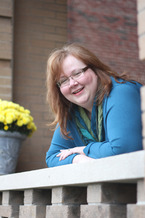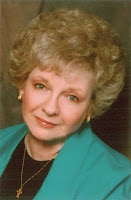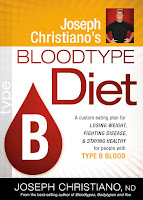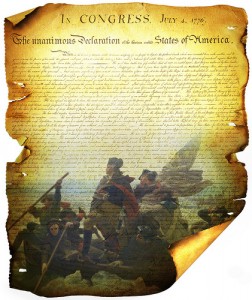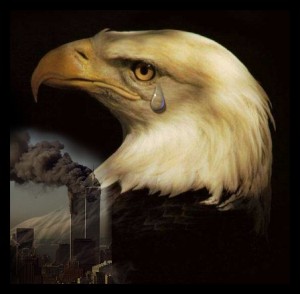A Very Private Grave
September 22nd, 2010 It is time for a FIRST Wild Card Tour book review! If you wish to join the FIRST blog alliance, just click the button. We are a group of reviewers who tour Christian books. A Wild Card post includes a brief bio of the author and a full chapter from each book toured. The reason it is called a FIRST Wild Card Tour is that you never know if the book will be fiction, non~fiction, for young, or for old…or for somewhere in between! Enjoy your free peek into the book!
It is time for a FIRST Wild Card Tour book review! If you wish to join the FIRST blog alliance, just click the button. We are a group of reviewers who tour Christian books. A Wild Card post includes a brief bio of the author and a full chapter from each book toured. The reason it is called a FIRST Wild Card Tour is that you never know if the book will be fiction, non~fiction, for young, or for old…or for somewhere in between! Enjoy your free peek into the book!
You never know when I might play a wild card on you!
and the book:
A Very Private Grave (Book 1: The Monastery Murders)
Monarch Books (August 1, 2010)
***Special thanks to Donna Fletcher Crow for sending me a review copy.***
Donna Fletcher Crow is the award-winning author of more than 30 books, primarily novels dealing with British history.
Visit the author’s website.
Product Details:
List Price: $14.99
Paperback: 384 pages
Publisher: Monarch Books (August 1, 2010)
Language: English
ISBN-10: 1854249681
ISBN-13: 978-1854249685
ISLAND BREEZES
I’m still in the process of reading this book. I find I’m having a hard time laying it down – even to write about it. It is a very compelling story.
Felicity is a young lady more interested in doing than in the history that goes along with her studies at the College at the Transfiguration. After walking in on the murder scene of her favorite priest, she is thrust even more into the history of her faith.
It’s become quite exciting as she is attempting to solve the murder and clear the name of the chief suspect. I’m beginning to see a little romance blooming here also.
If you want to find out more about this mystery, you’ll have to get your own book. I’m so glad it’s the first book in The Monastery Murders. Ms Fletcher Crow is really sucking me into this one. Now I’ll have more to look forward to.
AND NOW…THE FIRST CHAPTER:
She stopped her internal rant when she realized the crash of her book had obscured the knock at her door. Reluctantly she picked up the book, noting with satisfaction the smudge it had left on the wall, and went into the hall. Her groan wasn’t entirely internal when she made out the black cassock and grey scapular of her caller through the glass panel of the door. She couldn’t have been in less of a mood to see one of the long-faced monks who ran the College of the Transfiguration which she had chosen to attend in a moment of temporary insanity. She jerked the door open with a bang.
“Father Dominic!” Felicity was immediately sorry for her surly mood. Fr. Dominic was an entirely different matter. She was always happy to see him. “I didn’t realize you were back from your pilgrimage.” She held the door wide for him as he limped down the hall to her living room.
“Just returned, my dear. Just returned.” As he spoke he smiled with a twinkle in his eyes that belied his 85 years, but he couldn’t quite suppress a small sigh as he lowered himself stiffly onto her sofa.
“I’ll put the kettle on.” Felicity turned toward her small kitchen. “I’m so sorry I don’t have any scones.”
“No, no. Just tea today— black.”
She looked at him, puzzled for a moment, then remembered. Oh, yes— today was Ash Wednesday. Solemn fast and all that. Felicity mentally rolled her eyes as she filled the kettle with water and clicked it on.
A few minutes later she filled his cup with a steaming, amber stream of his favorite Yorkshire Gold tea. The Community had a year or two ago started serving a cheaper blend of tea and donating the money saved thereby to the African Children’s Fund Fr. Dominic chaired— a worthy cause, but the tea was dreadful.
He raised his cup, “Oh, who could ask for more? The nectar of the gods.” Still, she knew he was missing her scones for which he sometimes provided little jars of quince jam from the community kitchen. And at Christmas he had brought her favorite— slices of dark, rich fruit cake encased in marzipan an inch thick.
And yet today she wondered if he noticed what he was or wasn’t eating at all, he was so animated with his plans for the major funding drive the Children’s Fund was set to launch. “If one puts together abortion, infant mortality, AIDS and traumatic deaths, South Africa’s daily death toll is appalling. Thousands die in a matter of months. If this were a war, such troop causalities would not be acceptable. The entire future of that nation— the whole continent, really— is at stake. They simply cannot afford to lose so many of their people— especially the children who are the future. If you don’t maintain health and keep order, instability, violence and poverty tear a country apart.”
Felicity nodded vigorously. Yes, this was more like it. This was what she wanted to hear about, not some useless church history nonsense. Fr. Dominic had spent his life working in South Africa, and today his passion made every word strike her heart. “And it isn’t just South Africa, the rest of the continent looks to them— to us— for stability. If South Africa fails, millions of Africans will curse us— we who stand by and let it happen.”
Still, there was hope, Dominic had talked to key people while on pilgrimage and had secured a source for a vast amount for the fund, although he didn’t say what that source was. “This will be enough to build a first rate hospital for AIDS babies in Africa and fund a research wing for prevention and cure. There are good leaders in the government. There are people working for justice. If we can just give the people hope to hold on— ”
His eyes took on a dreamy look and a little smile played around his mouth. “Hope. That’s what it’s always been about. Through the centuries . . . At last, the treasure to be put to a truly worthy use. . .” He ducked his head and took a quick sip of tea. “Forgive me, I’ve said too much.” He became suddenly thoughtful and lapsed into a most uncharacteristic silence. All Felicity’s best efforts couldn’t coax any more stories from him. Perhaps it was just the solemnity of the day, but Felicity did miss his stories— even the ones she had heard multiple times.
He drained his cup and set it down. “Ah, thank you my dear. Always a pleasure to be in your bright company. But now I must be getting back up the hill. Father Superior has asked me to do the ashing at mass, so I must prepare.” He struggled to his feet, his broad-shouldered, once-muscular frame revealing gauntness under the weight of his black woolen cassock, as did the folds of flesh that hung beneath his square jaw.
“Oh, I almost forgot,” he patted the canvas scrip which hung at his side from a strap slung across his chest. “I thought this might interest you.” He held out a small parcel wrapped in brown paper and tied up with old-fashioned string. His hand shook ever so slightly as Felicity took it from him. The gesture was so endearing: his shyness charming; his eagerness humbling. If the circumstances had been vastly different he could have been a suitor offering jewels to his beloved, or perhaps in an earlier age a troubadour bestowing an ode to his lady. And oddly enough, Felicity had the distinct impression that he hadn’t at all forgotten, but rather that delivering this small package had been the sole object of his visit. One might almost say his mission.
Felicity couldn’t help herself. She stepped forward and kissed him on his cheek. “Thank you, Father.”
Unexpectedly he placed his hands on each side of her forehead. “The grace of our Lord Jesus Christ, the love of God, and the fellowship of the Holy Spirit be with you always.” She felt a warmth from his hands that infused her whole head and radiated toward her body as if she were being bathed in warm oil. She almost fancied a faint scent of spice as he made the sign of the cross over her.
Moving inside a bubble of hushed awe, she held the door for him and he walked out slowly, as if reluctant to leave, stepping carefully to avoid limping. “I’ll see you at mass, Father.”
She shut the door behind him and turned to the window to watch his slow progress down the uneven sidewalk, his grey scapular blowing in the wind. Somehow she wanted to call out to him, to cling to the moment, but already it was passing, the normality of the day moving in on a holy moment. Yet even as she turned away from the window, the warmth of his touch remained on her head. She turned back one last time, her hand held out to him, but no one was there. Only a fleeting shadow brushed the corner of her eye. She shivered, but when she blinked the sky was clear.
“Right. Back to the real world.” Felicity spoke aloud to make herself focus. She looked longingly at the small brown package in her hand. It felt like a book. A very slim volume. Had Father D. found a publisher for his poetry? Her fingers plucked at the string. No. If this was a collection of her friend’s poetry perusing it must not be rushed. Reading it would be her treat when she finished the work she had set for herself for the day. Lectures had been cancelled to mark the solemnity, but essays would still be due when they were due. With a sigh she slipped the gift into one of the copious patch pockets of her skirt and returned to the tome on the Anglo-Saxon church Fr. Antony had assigned, forcing herself to concentrate on its obscure irrelevancies.
That had been the hardest thing she had found about adjusting to her first year at theological college— the constant pressure for work, the lack of time to pursue her own interests— and that in a monastery, even. You really would think, living with a bunch of monks and future priests you’d have all the time in the world. Felicity shook her head.
And besides that, there was no margin for error on her part. As one of only four women among the student body of forty-some— and the only American— Felicity felt a double burden to reach the highest standards possible. This was the first year the Anglo-Catholic College of the Transfiguration had accepted women as ordinands, although they were still housed off campus awaiting alterations to the dormitories. Before “the Great Change” a few women enrolled as students, but were not allowed equal status with the male ordinands. Last year, however, the college had submitted to the winds of change and the powers that be, so now the women had full status— and double pressure.
Felicity, however was never one to let such barriers discourage her. She could rise to any challenge and her determination to succeed in this male-dominated world knew no limits. Anyway, she had few complaints. She had been warmly welcomed— by most. A handful of ordinands and perhaps two or three of the monks or lay teachers were less warm— whether because she was female or because she was American she wasn’t sure.
Two hours later the insistent ringing of the community bell called her back from her reading just in time to fling a long black cassock on over her shetland sweater and dash across the street and up the hill to the Community grounds. Her long legs carried her the distance in under three minutes— she had timed it once. Once inside the high stone wall enclosing the Community she slowed her pace. It never failed. No matter how irritated she became with all the ancient ritual and nonsense of the place, there was something about the storybook quality of it all that got through to her in her quieter moments.
The spicy scent of incense met her at the door of the church. She dipped her finger in the bowl of holy water and turned to share it with the brother just behind her. Shy Br. Matthew extended a plump finger without meeting her eyes. They each crossed themselves and slipped into their seats in the choir.
“Miserere mei, Deus. . .” The choir and cantors had practiced for weeks to be able to sing Psalm 51 to the haunting melody composed by Allegri. The words ascended to the vaulted ceiling; the echoes reverberated. Candles flickered in the shadowed corners. She had been here for six months— long enough for the uniqueness of it all to have palled to boredom— but somehow there was a fascination she couldn’t define. “Mystery,” the monks would tell her. And she could do no better.
What was the right term to describe how she was living? Counter-cultural existence? Alternate lifestyle? She pondered for a moment, then smiled. Parallel universe. That was it. She was definitely living in a parallel universe. The rest of the world was out there, going about its everyday life, with no idea that this world existed alongside of it.
It was a wonderful, cozy, secretive feeling as she thought of bankers and shopkeepers rushing home after a busy day, mothers preparing dinner for hungry school children, farmers milking their cows— all over this little green island the workaday world hummed along to the pace of modern life. And here she was on a verdant hillside in Yorkshire living a life hardly anyone knew even existed. Harry Potter. It was a very Harry Potter experience.
She forced her attention back to the penitential service with its weighty readings, somber plainchant responses, and minor key music set against purple vestments. Only when they came to the blessing of the ashes did she realize Fr. Dominic wasn’t in his usual place. Her disappointment was sharp. He had definitely said he was to do the imposition of the ashes and she had felt receiving the ashen cross on her forehead from that dear man would give the ancient ritual added meaning. Instead, Fr. Antony, one of the secular priests who lectured at the college, not even one of the monastic community, stood to hold the small pot of palm ashes while Fr. Anselm, the Superior of the Community, blessed them with holy water and incense.
Felicity knelt at the altar rail, “Remember that you are dust, and to dust you shall return.” The ashes were cold, a sooty mark of grief, gritty on her forehead.
“Amen,” she responded automatically.
She was back in her seat, turning ahead to the final hymn, “Forty Days and Forty Nights,” when she heard the soft slapping of sandals on the stone floor. Oh, there’s Fr. Dominic. She relaxed at the thought, putting away her worries that he had been taken suddenly ill. But her relief was short-lived when Fr. Clement, the Principal of the college, and Jonathan Breen, a scholar making a retreat at the monastery, slipped to the altar for their ashes.
The final notes of the postlude were still echoing high overhead when Felicity rose from her seat and hurried outside. Dinner, a vegetarian Lenten meal, would start in the refectory almost immediately and it wouldn’t do to be late. If she hurried, though, she could just dash back to her flat and pick up a book of Latin poetry for Fr. Dominic. She had a new volume of Horace, and she knew Fr. D loved the Roman’s half Stoic, half Epicurean philosophy. He would have time to enjoy what he called his “guilty pleasure” while he recuperated from his indisposition.
She bounded up the single flight of stairs, flung open her door and came to a sudden halt. “Oh!” The cry was knocked from her like a punch in the stomach. She couldn’t believe it. She backed against the wall, closing her eyes in the hope that all would right itself when she opened them. It didn’t. The entire flat had been turned upside down.
Felicity stood frozen for perhaps a full minute, trying to take it all in: books pulled from shelves, drawers pulled from her desk, cushions flung from chairs. Hardly breathing, she rushed into her kitchen, bath, bedroom— all chaos— sheets and duvet ripped from her bed, clothes pulled from her wardrobe. She picked her way through scattered papers, dumped files, ripped letters. Dimly she registered that her computer and CD player were still there. Oh, and there was the Horace book still by her bed. She pulled her purse from under a pile of clothes. Empty. But its contents lay nearby. Credit cards and money still there.
Not robbery. So then, what? Why?
Was this an anti-women-clergy thing? Had she underestimated the extent of the resentment? Or was it an anti-American thing? The American president was widely unpopular in England. Had he done something to trigger an anti-American demonstration? Felicity would be the last to know. She never turned on the news.
Well, whatever it was, she would show them. If someone in the college thought they could scare her off by flinging a few books around she’d give them something new to think about. She stormed out, slamming her door hard enough to rattle the glass pane and strode up the hill at twice the speed she had run down it. Not for nothing her years of rigorous exercise at the ballet barre. When she reached the monastery grounds she keyed in the numbers on the security lock with angry jabs and barely waited for the high, black iron gates to swing open before she was speeding up the graveled walk.
Felicity’s long blond braid thumped against her back as she charged onward, her mind seething. If those self-righteous prigs who posed as her fellow students thought they could put her off with some sophomoric trick—
She approached the college building, practicing the speech she would deliver to all assembled for dinner in the refectory: “Now listen up, you lot! If you think you can push me around just because your skirts are longer than mine. . .”
She punched a clenched-fist gesture toward her imaginary cassock-clad audience, then saw the Horace book still clutched in her hand. Oh, yes. First things first. She would have missed the opening prayer anyway. She would just run by Father D’s room— then she would tell them.
She hurried on up the path beyond the college to the monastery, ran her swipe card through the lock, and was halfway down the hall before the door clicked shut behind her. She had only been to Dominic’s room once before, to collect a poetry book he was anxious to share with her, but she would have had no trouble locating it, even had the door not been standing ajar.
She pushed it wider, preparing to step in. “Father D— ” she stopped at the sight of a man in a black cassock standing there praying. He jerked around at the sound of her voice and she recognized Fr. Antony, her church history lecturer.
She took a step backward when she saw the look of horror on his sheet-white face. “Felicity. Don’t come in.” He held up a hand to stop her and she saw it was covered with blood.
“Father D! Is he hemorrhaging?” She lunged forward, then stopped at the sight before her.
The whole room seemed covered in blood. Bright red splotches on the pristine white walls and bedding, on the open pages of a prayer book, on the statue of Our Lord, forming lurid stigmata on His hands extended in mercy. . .
And in the center of the floor, in a pool of red, his battered head all but unrecognizable— her beloved Father Dominic. The smell of fresh blood clogged her nostrils. Gorge rose in her throat.
“Felicity— ” Fr. Antony extended his reddened hands to her in a pleading gesture.
“No!” She screamed, wielding her Latin book as a shield against the blood, a red haze of shock and horror clouding her vision.
She couldn’t believe Antony’s face could get even whiter. “Felicity, wait. Listen—”
She dimly registered his words, but the voice in her head shouted with far greater force. No! It can’t be. It’s a mistake. She was in the wrong room. Must be. She shook her head against the nightmare she had seen yet couldn’t accept that she had seen. Blackness rolled toward her.
She staggered backward into the hall and slumped to the floor as the room spun before her. She closed her eyes against the darkness as her mind reeled, groping for a coherent thought. How could this be?
Only a short time ago she had been reveling in the peace of this remote holy place. Where could such violence have come from? How was it possible here? In a place of prayer? To a holy man. Why?
If Fr. Dominic wasn’t safe who could be?
And even as the questions tumbled, half-formed through her head, even as her mind denied the act her eyes saw, she knew she had to find an explanation. How could she continue studying— believing in— purpose and justice if such senseless irrationality reigned free?
Focusing on the questions gave her strength to get her feet under her again.
Antony was still standing dazed in the gore-splattered room looking as though he could collapse in the middle of the pool of blood. Felicity grabbed his arm, jerked him into the corridor, and shoved him against the wall where he stayed, leaning heavily. He held his hands before his face as if unbelieving they were his own. “When he missed mass I came to check on him. . . I felt for a pulse— ”
“We must get help!” Felicity looked wildly around.
“Yes, of course.” Her energy seemed to galvanize Antony. He pushed himself forward unsteadily. “Forgive me, I feel so stupid. It was the horror. I— we must tell the Superior. He’ll call the police.”
“Police? You mean an ambulance.” Felicity started toward the room again. Yes, that was it— how could she have dithered so when they must get help. “He’s lost so much blood, but maybe—”
“No!” Antony gripped her shoulder with more strength than she realized he was capable of. “Don’t go in there again, Felicity. It’s useless.”
She knew. She had seen the blood.







